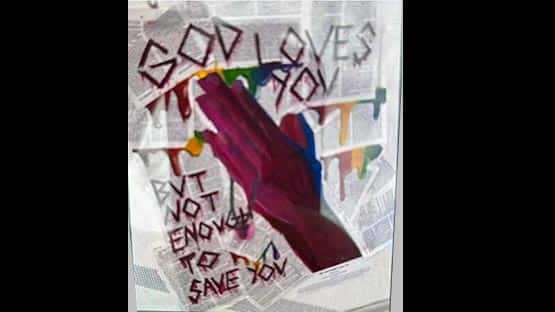Column by Jim Bishop

That was The Playmates’ vision in their 1960 ditty, but this is 2008.
Tunesmiths have crafted considerably different concepts of this most basic of all emotions over time: Love can make you happy … love is a battlefield … love is a rose … love is blue … love is just a four-letter word … love is like an itching in my heart … love hurts … love stinks … love is a many splendored thing …
And the beat goes on …
Love most certainly extends far beyond a perceived image of a goddess, Venus in bluejeans, Mona Lisa with a ponytail, poetry in motion.
All you need is love, The Beatles declared in 1967, but they split up four years later.
“Love” is a word used too lightly. I find myself saying, “I love pizza, seafood, a warm and sunny day on the beach, music of the 1950s, cruising in my Miata with the top down.”
Rather, it’s advisable to be “in like” with things and possessions; be “in love” with your spouse, family, significant others, your Creator God.
Love is strange, wonderful, wonderful, quixotic, a force that makes us act like flamingos on hallucinogens around members of the opposite sex – to strut our stuff, to impress, to play games, to beguile, to seek out in the other that which may be lacking in our own lives.
“Love means never having to say you’re sorry,” the infamous line from the popular “Love Story” film, is the crookedest idea ever foisted on humankind, I say.
If we love and are loved, we are obligated to forgive or ask for forgiveness, often, especially of those closest to us, and once the hatchet is buried, not to mark the spot.
Love means sometimes having to choose the narrowest path, to swim against the tide of popular opinion and culture, to practice tough love and discipline with the very ones we care for most, to take risks and say “no” to practices that can harm our physical and mental well-being.
We are to love others as we love ourselves – which implies that we must have confidence, a strong sense of self-worth (not narcissistic) that drives us to reach out and care for others.
It’s the only force that can turn an enemy into a friend.
Love has good manners. It calls us to say “please” and “thank you” frequently, repeatedly, and to treat our universe and its inhabitants with respect.
I can state unequivocally that my love for my spouse Anna is at a much different place, and certainly at a deeper, more complex level, than it ever was when we first said “I do” some 40 years ago. (We announced our engagement on Valentine’s Day, Feb. 14, 1967).
Why? Because we now know so much more about each other, keep discovering things about our likes and dislikes while wanting to please and affirm each other. But a strong marital bond doesn’t just happen; it takes work and a desire to keep growing that extends way beyond the physical (good thing, ’cause our physical vehicles keep needing more extensive repair).
We need to know what drives this internal force and to manage it with care, so that it doesn’t become abused and maligned, until we become a clanging gong, a tinkling cymbal.
Ultimately, love will keep us together, changing events and turning persons from their innate destructive bent toward becoming helpers and healers.
(Oh, all ye perspicacious readers still with me, should have noticed the titles of 20 love songs embedded in this essay).
These things yet abide – faith, hope and love, declared St. Paul, who had his share of detractors.
Love is the greatest of these, so let your love lights shine ’til the end of time.
Jm Bishop is public-information officer at Eastern Mennonite University. He can be contacted at [email protected].










